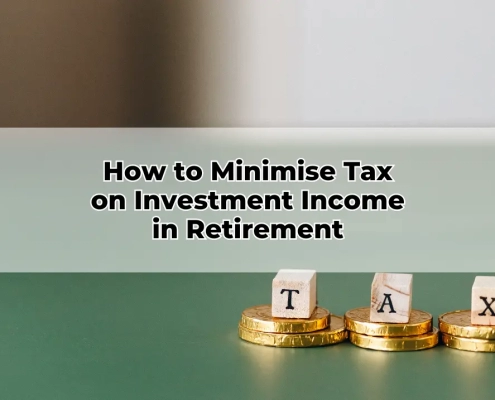
How to Minimise Tax on Investment Income in Retirement
Retirement should represent the culmination of a life’s hard work—not a financial burden due to poor tax planning. As a Toowoomba Financial Adviser, one of the most significant areas where retirees can maximise their income is through…

The Risks of Cryptocurrency in Your Investment Portfolio
The meteoric rise of cryptocurrency has caught the attention of everyday investors, seasoned financiers, and global institutions alike. Bitcoin, Ethereum, and a suite of altcoins have evolved from obscure digital concepts to mainstream assets…
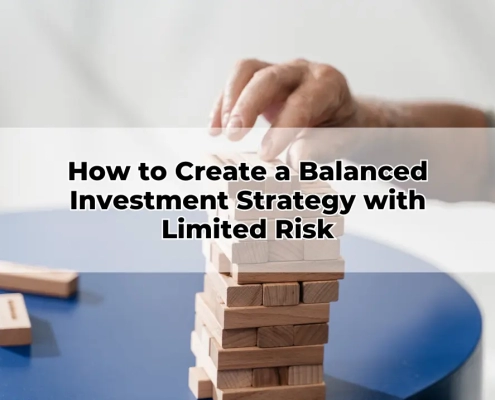
How to Create a Balanced Investment Strategy with Limited Risk
In the ever-evolving world of investing, achieving sustainable growth while safeguarding capital is paramount. A balanced investment strategy is designed to deliver just that-equilibrium between capital appreciation and risk mitigation. It entails…

How to Choose the Right Investment for Your SMSF
Self-managed superannuation funds (SMSFs) offer an unparalleled level of control, but with this freedom comes the burden of complexity. Choosing the right investment for your SMSF is not a decision to be made lightly. It requires precision,…
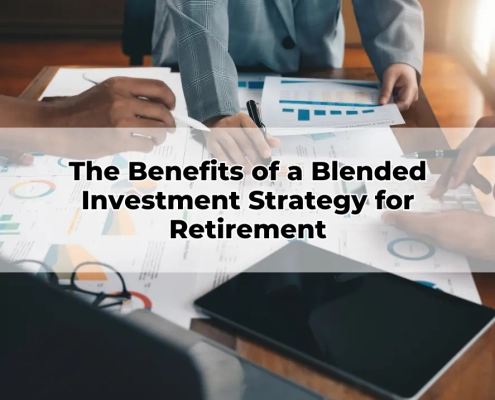
The Benefits of a Blended Investment Strategy for Retirement
In a world where longevity risk, inflation creep, and market unpredictability converge, retirees and pre-retirees must evolve their thinking. The traditional reliance on a single investment approach—be it purely growth-focused or fixed income—no…

Capital Gains Tax on Property
Capital Gains Tax (CGT) is an often-overlooked yet critically important consideration in the financial trajectory of any property investor in Australia. Whether it's your family home, an investment property, or land held within a Self-Managed…

What Investors Need to Know About Emerging Markets
Emerging markets refer to economies in transition from developing to developed status. These countries often experience rapid industrialisation, population growth, and economic reform, making them fertile ground for capital appreciation. Investors…

How to Use Investment Loans to Maximise Portfolio Returns
Utilising investment loans, or gearing, is a powerful financial strategy that can amplify portfolio returns when executed prudently. While the concept of borrowing to invest may seem counterintuitive to some, particularly those with a conservative…
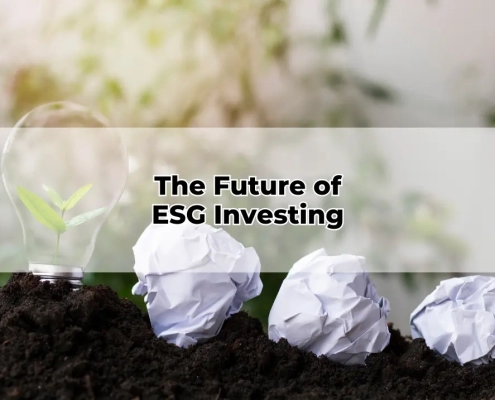
The Future of ESG Investing
Environmental, Social and Governance (ESG) investing has evolved from a niche ethical concern into a formidable force shaping capital allocation across global markets. In Australia, the appetite for ESG investments is surging, driven by an informed…

The Benefits of Building a Family Legacy with Trust Funds
Trust funds have evolved from being mere wealth preservation tools to becoming powerful instruments for legacy building. For families seeking to impart not only financial security but also long-lasting values to future generations, trust funds…
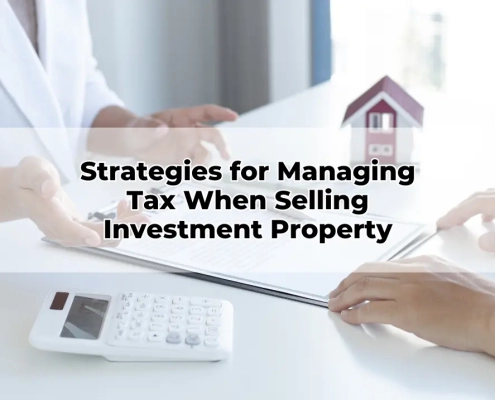
Strategies for Managing Tax When Selling Investment Property
Selling an investment property can trigger a cascade of tax considerations that may significantly impact your financial outcomes. Understanding these implications is paramount. In Australia, capital gains tax (CGT) typically applies when you…
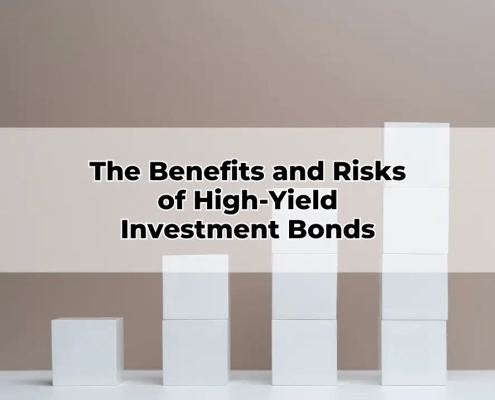
The Benefits and Risks of High-Yield Investment Bonds
High-yield investment bonds, often colloquially termed "junk bonds," occupy a unique niche in the financial landscape. Offering returns significantly higher than government bonds or investment-grade corporate debt, they are attractive to investors…
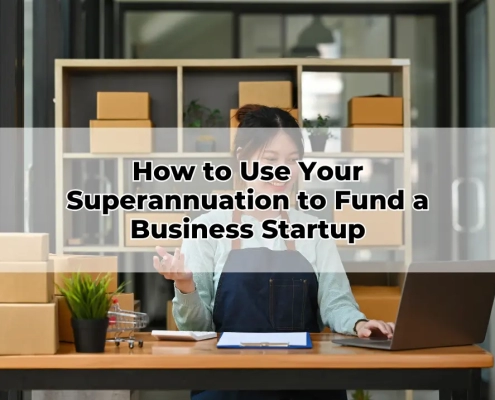
How to Use Your Superannuation to Fund a Business Startup
Australia's superannuation system is designed to provide financial stability in retirement. However, for those with entrepreneurial ambition and strategic foresight, super can also become a powerful funding mechanism for launching a business…
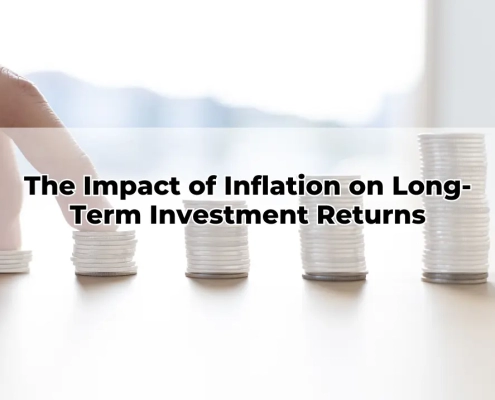
The Impact of Inflation on Long-Term Investment Returns
Inflation, often viewed as an economic inevitability, quietly eats away at purchasing power, slowly but surely undermining the value of money. For investors, especially those focused on long-term outcomes, inflation is not merely a macroeconomic…
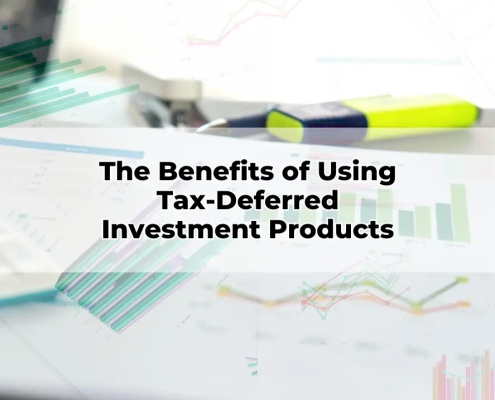
The Benefits of Using Tax-Deferred Investment Products
Tax-deferred investment products are an integral component of intelligent wealth-building strategies, particularly for individuals looking to accumulate wealth efficiently over time. Unlike traditional investment options where earnings are taxed…

The Benefits of SMSF for Real Estate Investment
Self-Managed Super Funds (SMSFs) have become a compelling vehicle for wealth accumulation, particularly for those seeking to invest in real estate. With increased control, transparency, and potential tax advantages, SMSFs enable investors to…
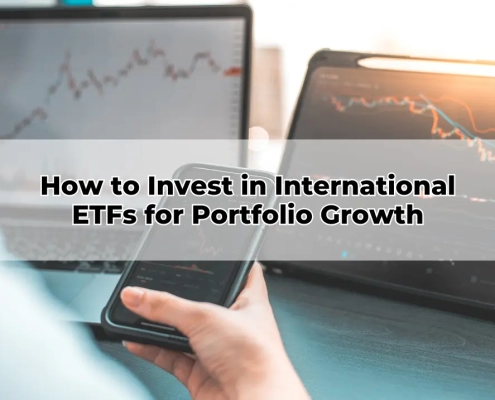
How to Invest in International ETFs for Portfolio Growth
International Exchange-Traded Funds (ETFs) are diversified investment vehicles that offer exposure to global markets without the complexity of directly purchasing foreign assets. These funds pool investor money and track international indices…
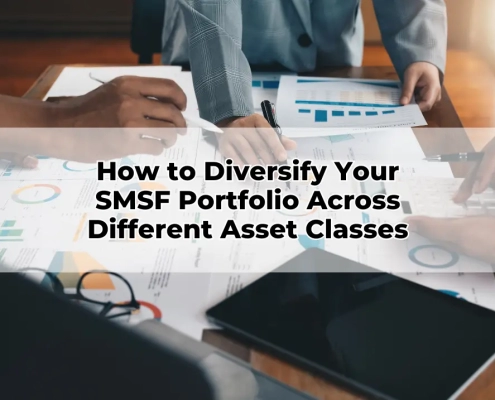
How to Diversify Your SMSF Portfolio Across Different Asset Classes
In the realm of self-managed superannuation funds (SMSFs), diversification is not a buzzword—it's a fundamental tenet of sound investing. As a Toowoomba Financial Adviser, I’ve observed that many trustees underestimate the significance…

Investing in Treasury Bonds: The Pros and Cons
Australian Treasury Bonds represent a fundamental pillar of the fixed-income investment landscape. Issued by the Commonwealth Government, these debt securities are considered among the most secure investment vehicles in the nation. They pay…
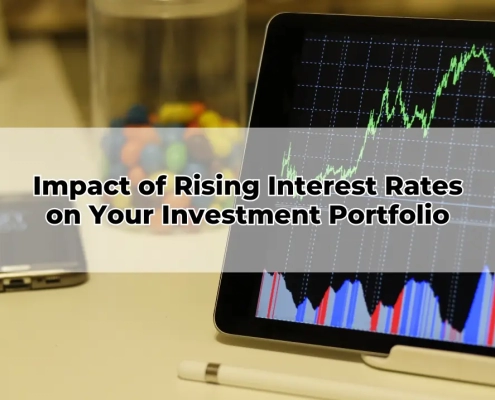
Impact of Rising Interest Rates on Your Investment Portfolio
Australia’s economic fabric is constantly shifting, with the Reserve Bank of Australia (RBA) using interest rate changes as a primary tool to control inflation and stimulate or cool the economy. In recent years, a sharp rise in interest rates…

What is an Investment Bond and How Does it Work?
An investment bond, also referred to as an insurance bond or a tax-paid investment, is a long-term investment structure offered by life insurance companies. These financial instruments are essentially a blend of a managed fund and a life insurance…

How to Use an SMSF to Invest in Cryptocurrency
Self-managed superannuation funds (SMSFs) provide Australians with greater control over their retirement savings. As digital assets gain traction, many investors are exploring cryptocurrency as a viable addition to their SMSF portfolio. However,…

Ethical Investing: Aligning Your Portfolio With Your Values
Ethical investing has surged in popularity as investors seek to align their financial decisions with their personal values. Whether it's environmental sustainability, social responsibility, or corporate governance, investors are demanding more…
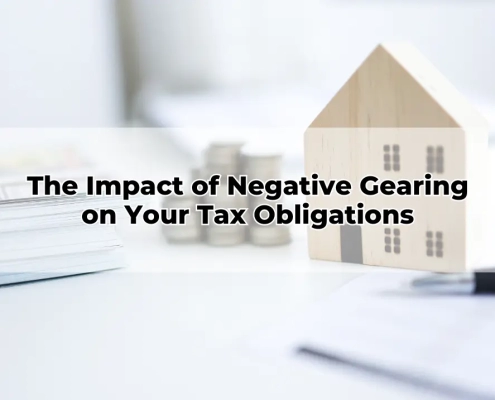
The Impact of Negative Gearing on Your Tax Obligations
Negative gearing is a widely used investment strategy in Australia, particularly within the property market. While it offers potential tax advantages, it also carries financial risks that require careful consideration. Understanding how negative…

Tax Deductions for Investment Properties
Investing in property can be a lucrative strategy, but to maximise your returns, understanding the tax benefits is essential. The Australian Taxation Office (ATO) allows property investors to claim various deductions, reducing taxable…
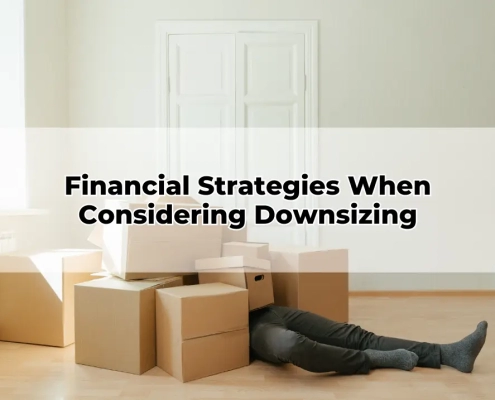
Financial Strategies When Considering Downsizing
Downsizing is often viewed as a simple decision to relocate to a smaller residence. However, it is a multifaceted financial strategy with implications for retirement, superannuation, and estate planning. Australians considering downsizing should…

The Pros and Cons of Reverse Mortgages
A reverse mortgage is a financial product designed for Australians aged 60 and over, allowing homeowners to access equity tied up in their property without the need to sell. Unlike a traditional mortgage, no regular repayments are required,…

Direct Property Investment vs Property Syndicates
Property investment remains a cornerstone of wealth creation in Australia, yet the strategies available to investors vary significantly. Two prevalent options are direct property investment and property syndicates. Each offers unique benefits…
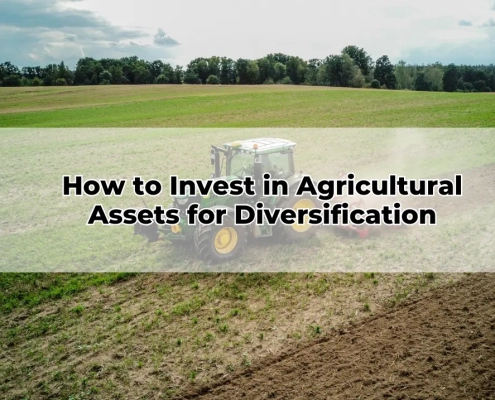
How to Invest in Agricultural Assets for Diversification
Agricultural investments have long been an overlooked asset class, yet they offer significant potential for diversification. With global demand for food increasing and farmland being a finite resource, investing in agriculture can provide stability,…

How to Leverage Trusts for Asset Protection and Tax Benefits
Trusts are a fundamental instrument in financial planning, offering both asset protection and tax efficiencies. They serve as a legal framework to hold and manage assets on behalf of beneficiaries, providing flexibility in wealth distribution…

Investing for Impact: Socially Responsible Investments
Socially responsible investing (SRI) has gained significant traction in recent years, as investors seek to align their financial goals with their ethical values. The growing awareness of environmental, social, and governance (ESG) issues has…

The Benefits of a Buy-Sell Agreement in Business Succession
Business succession planning is an essential strategy for ensuring the smooth transition of ownership when a key stakeholder exits the business. Without a well-structured plan, businesses face uncertainty, disputes, and financial instability.…

When Should You Consider Adding Private Equity to your Portfolio?
Private equity is often associated with institutional investors and high-net-worth individuals, but it is increasingly accessible to sophisticated retail investors. This alternative asset class can provide unique opportunities for wealth creation,…

How to Avoid Common Mistakes with Margin Lending
Margin lending can be a powerful strategy for wealth accumulation, but it comes with inherent risks. Many investors make costly errors that can erode capital and jeopardise financial security. By understanding these pitfalls and implementing…

The Convertible Bonds and Their Role in Diversification
In the ever-evolving financial landscape, investors constantly seek ways to balance risk and return. One often-overlooked instrument in portfolio construction is the convertible bond. These hybrid securities offer a unique blend of fixed-income…

The Role of Dollar-Cost Averaging in Volatile Markets
Dollar-cost averaging (DCA) is a disciplined investment strategy that involves investing a fixed amount of money into a particular asset at regular intervals, regardless of market fluctuations. This method contrasts with lump-sum investing,…
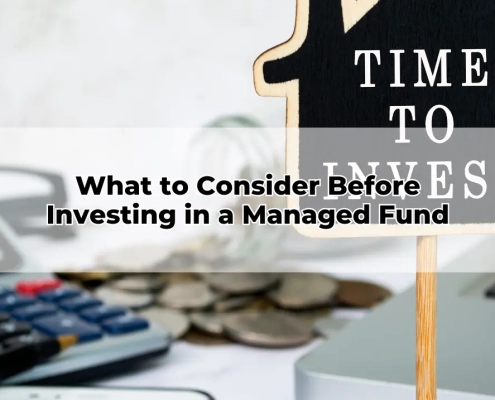
What to Consider Before Investing in a Managed Fund
Managed funds are investment vehicles where multiple investors pool their money to be managed by a professional fund manager. These funds offer diversification, professional oversight, and access to markets that may otherwise be challenging…
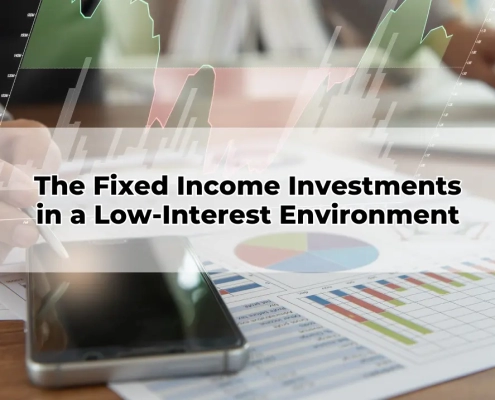
The Fixed Income Investments in a Low-Interest Environment
Fixed income investments have long been a cornerstone of a well-diversified portfolio, offering stability, predictable returns, and a safeguard against market volatility. However, in today’s low-interest-rate environment, these investments…
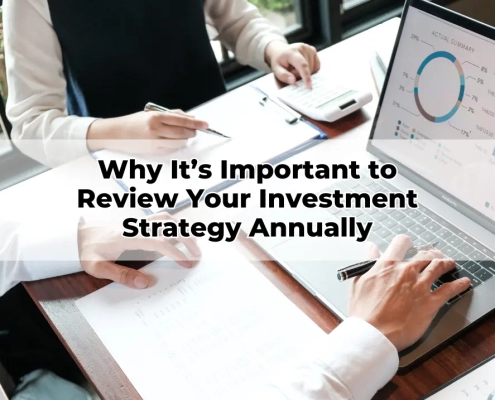
Why It’s Important to Review Your Investment Strategy Annually
Investing is not a static process; it is an evolving journey that requires periodic reassessment. An annual review ensures that your investments remain aligned with your financial goals and risk tolerance. Over time, changes in economic conditions,…

The Australian Residential Property Market Cycle
The Australian residential property market is dynamic, shaped by economic factors, government policies, and consumer sentiment. Understanding its cyclical nature is essential for investors, homeowners, and financial planners. The property market…
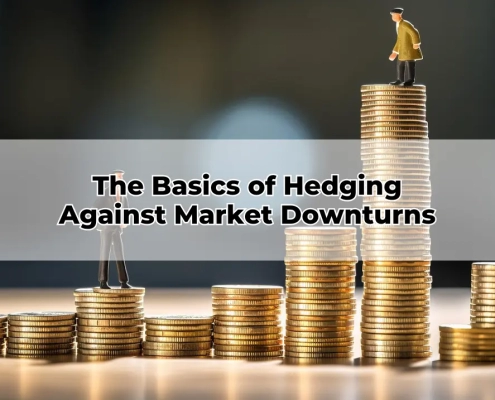
The Basics of Hedging Against Market Downturns
Market downturns are an inevitable aspect of investing. Economic cycles fluctuate due to various macroeconomic and geopolitical factors, leading to periods of market corrections or even recessions. These downturns can erode wealth if investors…

The Role of Structured Products in a Conservative Investment Strategy
Structured products have emerged as an attractive investment vehicle, offering customisable risk-reward profiles for conservative investors. These financial instruments combine traditional assets, such as equities or bonds, with derivatives…
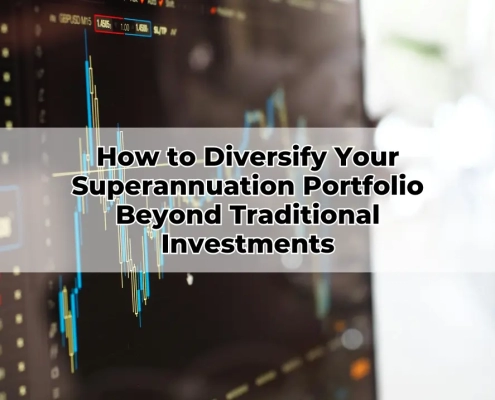
How to Diversify Your Superannuation Portfolio Beyond Traditional Investments
Diversification is a fundamental investment strategy designed to mitigate risk and enhance returns. Within the realm of superannuation, traditional portfolios often comprise equities, fixed interest, and cash. However, an overreliance on these…

How to Use Hybrid Securities in Your Investment Portfolio
Hybrid securities are investment instruments that combine characteristics of both debt and equity, offering investors a blend of fixed income and potential capital appreciation. These financial products are commonly issued by banks and corporations,…

The Different Phases of Retirement and Investment Needs
Retirement is not a singular event but a series of evolving life stages, each with its own financial challenges and opportunities. To ensure a secure and fulfilling retirement, it is crucial to understand the distinct phases and align investment…

What You Need to Know About Investing in Australian Small-Cap Stocks
Small-cap stocks represent companies with a relatively small market capitalisation, typically ranging between $300 million and $2 billion. These stocks are often characterised by high growth potential, increased volatility, and the ability to…
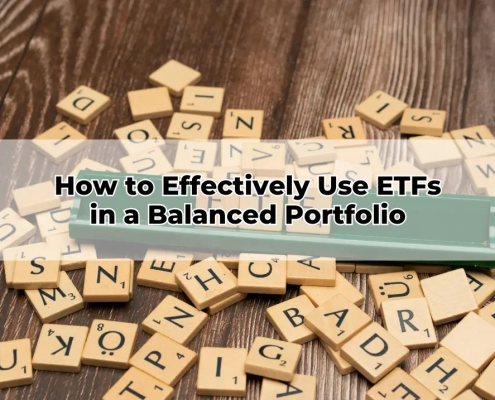
How to Effectively Use ETFs in a Balanced Portfolio
Exchange-Traded Funds (ETFs) have become a cornerstone of modern portfolio management, offering diversification, liquidity, and cost efficiency. Unlike traditional managed funds, ETFs trade on stock exchanges, providing investors with exposure…

How to Protect Your Investment Portfolio from Currency Fluctuations
Currency movements can have a profound impact on investment portfolios, particularly for those exposed to international markets. Exchange rates fluctuate due to factors such as interest rate differentials, economic performance, geopolitical…

SMSF for Family-Owned Businesses
Establishing a Self-Managed Super Fund (SMSF) for a family-owned business can be an effective strategy to maximise retirement savings, consolidate wealth, and enhance financial flexibility. However, setting up an SMSF requires careful planning,…
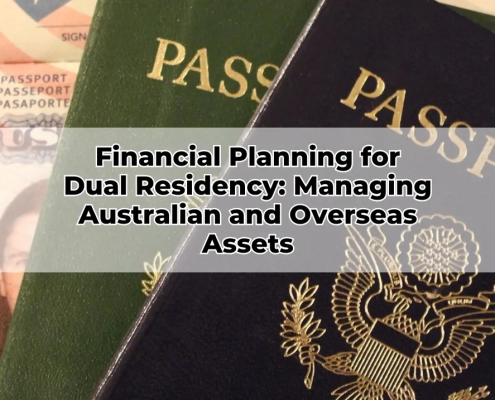
Financial Planning for Dual Residency: Managing Australian and Overseas Assets
Dual residency refers to a situation where an individual resides in two countries, either permanently or for extended periods. This status often arises due to work, family ties, or investment opportunities. For those managing assets across two…
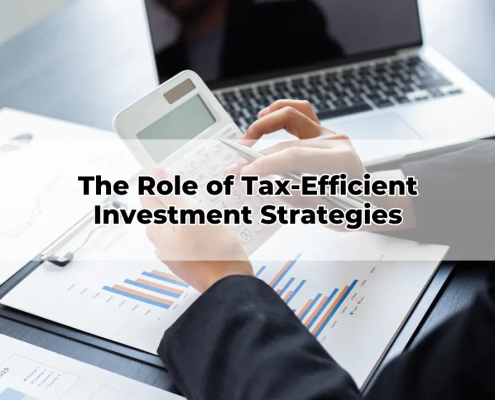
The Role of Tax-Efficient Investment Strategies
Tax-efficient investing is the practice of structuring investments to minimise tax liabilities and maximise after-tax returns. In Australia, where the tax system is intricate and multi-layered, investors must navigate capital gains tax (CGT),…
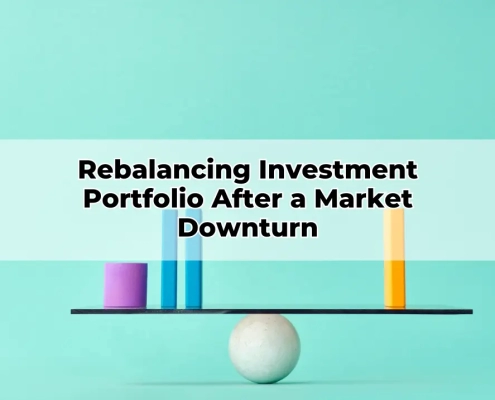
Rebalancing Investment Portfolio After a Market Downturn
Rebalancing an investment portfolio is a critical aspect of maintaining long-term financial stability. After a market downturn, assets may become misaligned with an investor’s original strategy. This process ensures that the portfolio reflects…
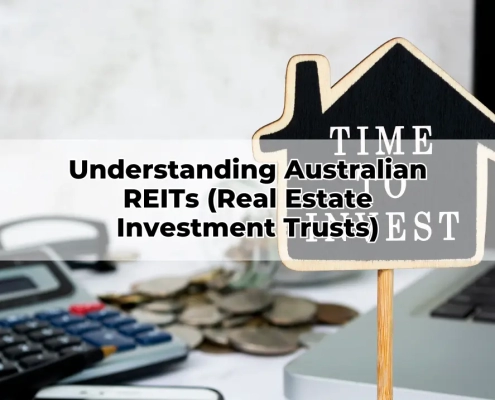
Understanding Australian REITs (Real Estate Investment Trusts)
Real Estate Investment Trusts (REITs) have become an increasingly popular investment vehicle. They offer investors exposure to the property market without the complexities of direct property ownership. With Australia’s robust property sector,…

How Australians Can Invest in Gold
Gold has been a sought-after asset for centuries, acting as a store of wealth and a hedge against economic volatility. In Australia, investors have several avenues to gain exposure to gold, each with its unique advantages and risks. Understanding…

How to Use Options to Hedge Investment Risks
Investment markets are inherently volatile. Whether it's economic uncertainty, inflation fluctuations, or unexpected geopolitical events, investors must navigate risks that can erode portfolio value. One of the most effective tools for mitigating…
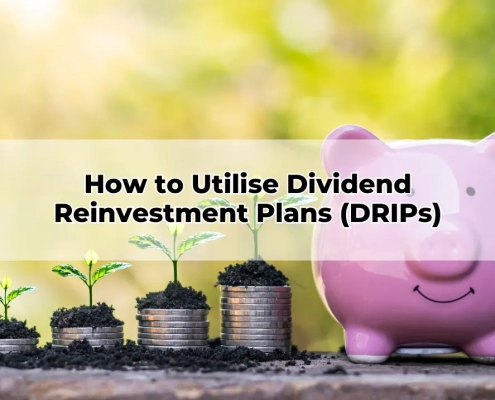
How to Utilise Dividend Reinvestment Plans (DRIPs)
Dividend Reinvestment Plans (DRIPs) are a powerful tool for wealth accumulation and financial growth. They enable investors to automatically reinvest cash dividends from shares into additional shares of the same company, fostering long-term…
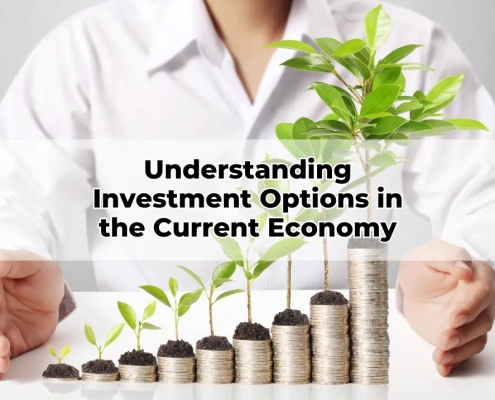
Understanding Investment Options in the Current Economy
In a rapidly evolving economic landscape, understanding investment options has never been more critical. Whether you’re planning for retirement, building wealth, or seeking financial security, knowing how to navigate the complexities of today’s…
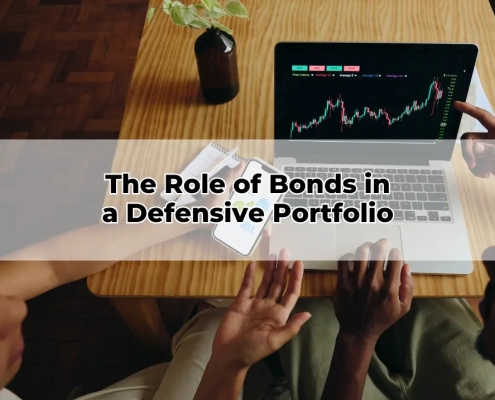
The Role of Bonds in a Defensive Portfolio
A defensive portfolio is an investment strategy designed to minimise risk, especially during periods of market volatility. Unlike aggressive portfolios focused on capital growth, a defensive approach prioritises capital preservation and steady…

How to Pass Down Wealth Efficiently to Your Heirs
Creating a plan to efficiently transfer wealth to your heirs is one of the most important steps in financial planning. With the right strategies in place, you can minimise tax implications, ensure your legacy is honoured, and provide for future…
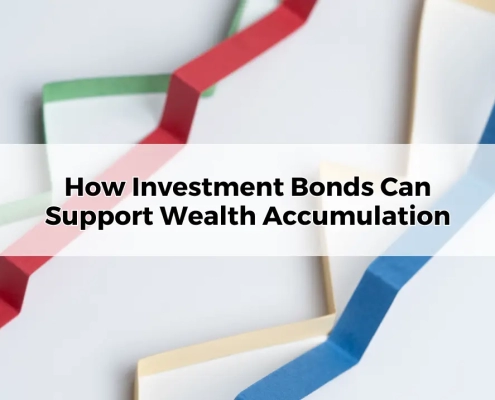
How Investment Bonds Can Support Wealth Accumulation
Investment bonds, often referred to as insurance bonds, are an overlooked yet powerful wealth accumulation tool. For Australians looking to build a secure financial future, understanding their unique benefits is essential. Combining investment…
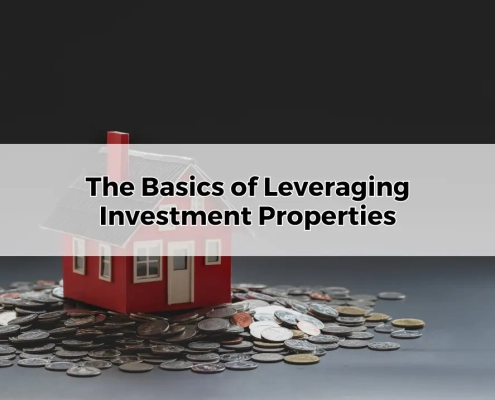
The Basics of Leveraging Investment Properties
Investing in property has long been a favoured strategy for Australians seeking to grow their wealth. By leveraging investment properties, you can amplify your financial potential and achieve your goals sooner. But what does leveraging entail,…

Why Financial Advisers Recommend Diversified Investments
Diversification stands as a cornerstone of sound financial planning. This strategy mitigates risk while maximising returns, ensuring a balanced approach to wealth creation and preservation. It’s a vital component of any robust financial strategy,…
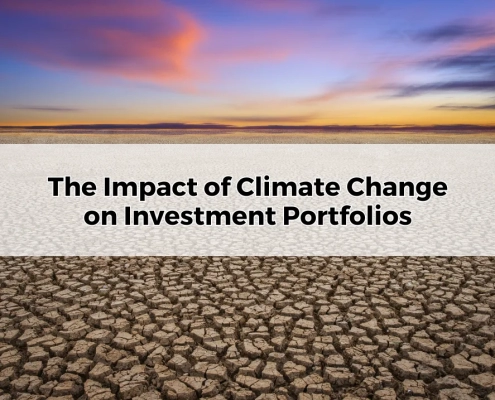
The Impact of Climate Change on Investment Portfolios
Climate change is no longer a distant environmental issue; it is a powerful force shaping global financial markets. Severe weather events, rising global temperatures, and shifting regulations are influencing economic landscapes worldwide. Investors…
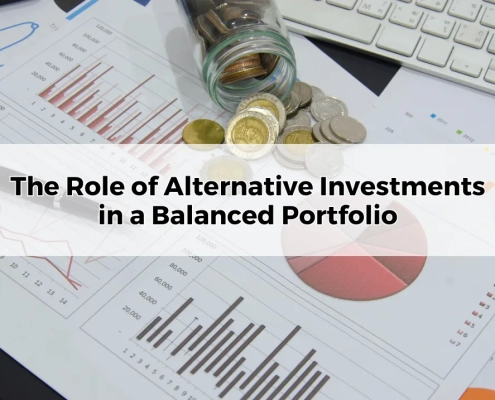
The Role of Alternative Investments in a Balanced Portfolio
Alternative investments are an increasingly popular asset class for those looking to diversify their portfolios beyond traditional stocks and bonds. These investments include tangible assets like real estate and commodities, as well as financial…
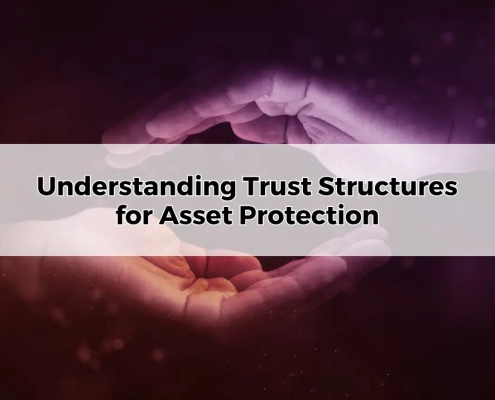
Understanding Trust Structures for Asset Protection
Trusts have long been a cornerstone of effective financial planning. They provide a legal framework that allows one party to hold and manage assets for the benefit of another. In Toowoomba, financial advisers are increasingly recommending trust…
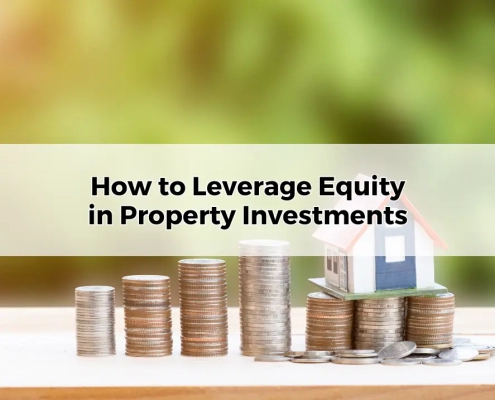
How to Leverage Equity in Property Investments
Property equity represents one of the most underutilised resources in property ownership, yet it holds incredible potential for wealth creation. Equity is essentially the difference between the current market value of your property and the outstanding…
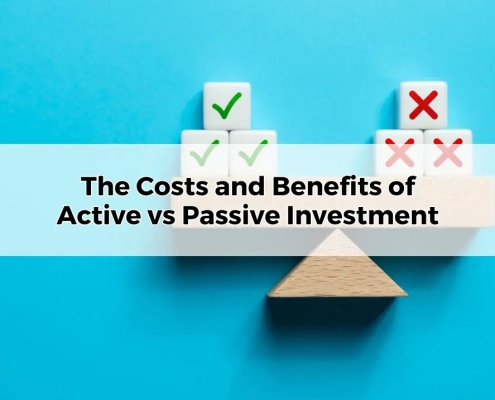
The Costs and Benefits of Active vs Passive Investment
Choosing between active and passive investment strategies is a pivotal decision for Australians seeking to grow their wealth. Each approach has distinct costs, benefits, and risks that require careful consideration. This article explores the…

When is the Best Time to Invest in Property?
The Australian property market has long been a cornerstone of wealth creation, attracting investors with its resilience and potential for high returns. However, understanding when to invest is crucial to maximising profitability and minimising…
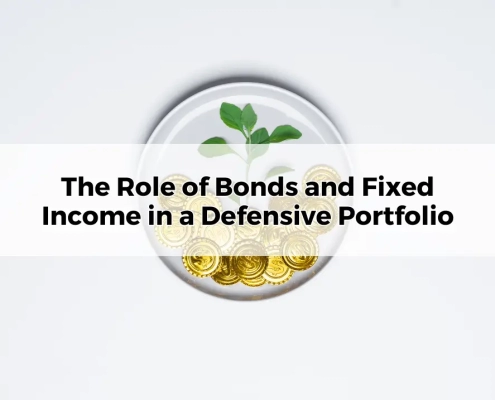
The Role of Bonds and Fixed Income in a Defensive Portfolio
In an increasingly unpredictable financial landscape, safeguarding wealth is more critical than ever. Australian investors are turning to defensive portfolios to preserve their capital while maintaining steady income streams. At the heart of…
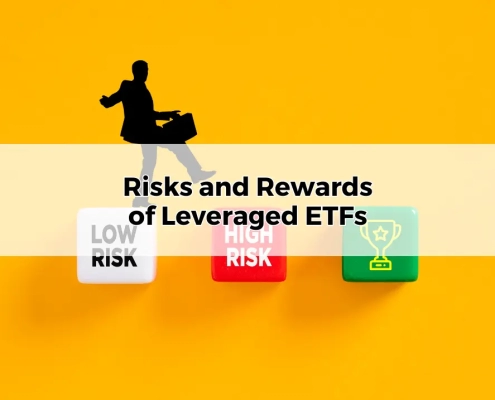
Risks and Rewards of Leveraged ETFs
Leveraged Exchange-Traded Funds (ETFs) have become a buzzword among Australian investors, particularly those seeking higher returns in a shorter timeframe. These financial instruments offer a unique way to amplify market exposure, making them…

What You Need to Know About ESG Investing
Environmental, Social, and Governance (ESG) investing is an investment approach that has gained significant traction in recent years as individuals and institutions increasingly seek to align their financial decisions with their ethical and…
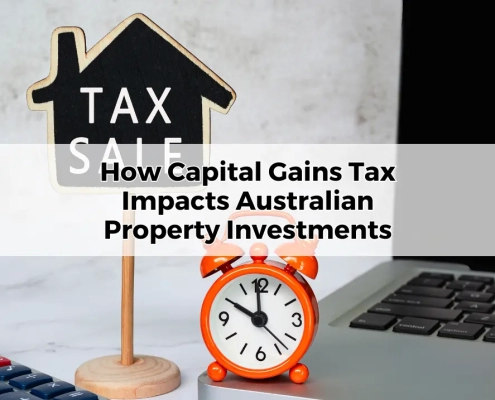
How Capital Gains Tax Impacts Australian Property Investments
Capital Gains Tax (CGT) is a critical consideration for anyone investing in Australian property. It applies to the profit made when you sell a property for more than its purchase price. While property investments can generate substantial returns…

What is a Testamentary Trust, and How Does It Work in Estate Planning?
A testamentary trust is a powerful estate planning tool that can provide significant benefits for managing and distributing assets after death. Established under a will, a testamentary trust comes into effect only after the testator…

How to Integrate Property Investments into Your Superannuation Strategy
Property investment is a popular avenue for Australians looking to build long-term wealth, and incorporating property into a superannuation strategy can provide significant advantages. Superannuation is designed to accumulate savings for…
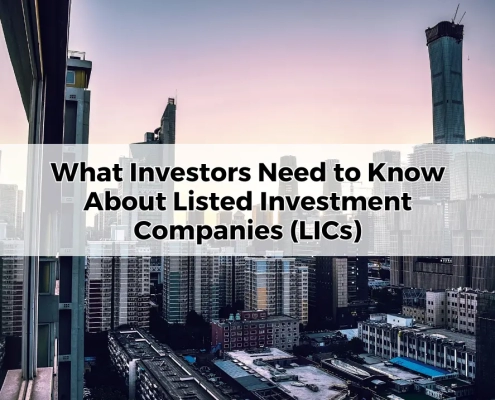
What Investors Need to Know About Listed Investment Companies (LICs)
Listed Investment Companies (LICs) are a popular option for Australian investors seeking a diversified, professionally managed portfolio. These companies are traded on the Australian Securities Exchange (ASX) and operate similarly…
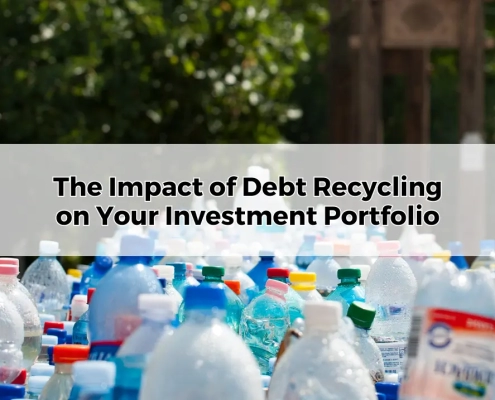
The Impact of Debt Recycling on Your Investment Portfolio
Debt recycling is a financial strategy that involves using equity in your home to generate tax-deductible debt for investment purposes. This approach aims to convert non-deductible mortgage debt into deductible investment debt, potentially…

How to Make Ethical Investments in Australian Real Estate
Ethical investing is becoming increasingly popular among Australians who want to align their financial decisions with their values. In real estate, ethical investing means selecting properties or projects that meet specific environmental,…
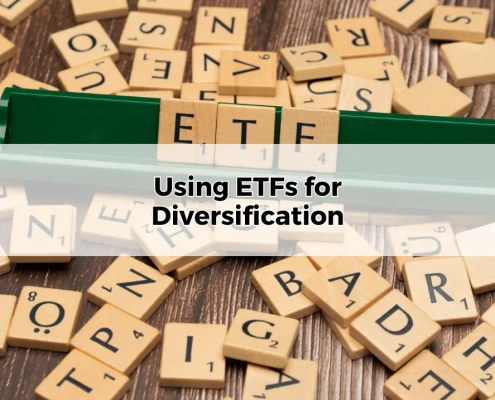
Using ETFs for Diversification
Exchange-Traded Funds (ETFs) have revolutionised the way Australians invest, offering a simple and cost-effective path to diversification. By pooling funds to track indices or asset groups, ETFs enable investors to hold a variety of assets…

How to Plan for Market Volatility
Market volatility is an inherent part of investing, often driven by economic cycles, global events, or shifts in market sentiment. For Australians, having a structured approach to investment planning can mitigate the risks and…

The Role of a Financial Adviser in Managing High-Net-Worth Investments
High-net-worth individuals (HNWIs) often have unique financial needs, goals, and challenges that require specialised investment strategies and planning. With substantial assets at stake, managing high-net-worth investments goes beyond typical…

Estate Planning for Business Owners
For business owners, estate planning goes beyond the transfer of personal wealth to family members. It includes strategies for business succession, ensuring the continuity of operations, and preserving the value of the enterprise for future…
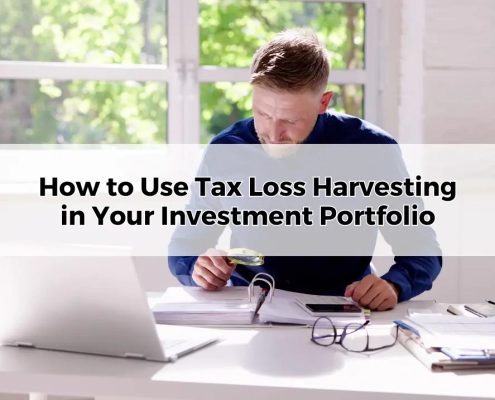
How to Use Tax Loss Harvesting in Your Investment Portfolio
Tax loss harvesting is an investment strategy that allows investors to reduce their taxable income by selling investments at a loss to offset gains from other investments or even regular income. By strategically realising losses on underperforming…

How to Set Up an SMSF for Family-Owned Businesses
Setting up a Self-Managed Superannuation Fund (SMSF) offers family-owned businesses unique advantages, allowing family members to pool their superannuation savings and invest in ways that align with their business goals and retirement plans.…

Financial Planning for Dual Residency
Dual residency, or holding tax residency in both Australia and another country, presents unique financial planning challenges. Managing Australian and overseas assets under dual residency status requires careful planning to address tax obligations,…
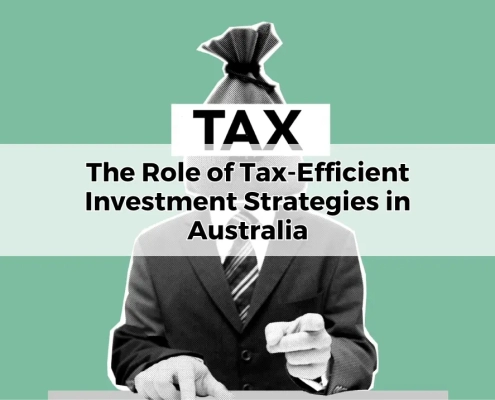
The Role of Tax-Efficient Investment Strategies in Australia
Taxes play a significant role in shaping investment outcomes. For Australian investors, implementing tax-efficient investment strategies can reduce the overall tax burden, enhance returns, and increase wealth over time. Tax-efficient investing…
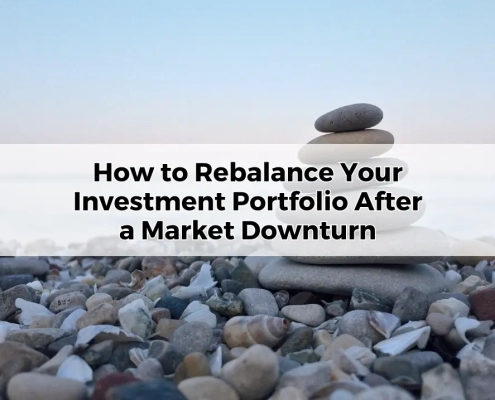
How to Rebalance Your Investment Portfolio After a Market Downturn
Rebalancing an investment portfolio is a crucial practice for staying on track with long-term financial goals, particularly after a market downturn. When markets decline, asset values shift, affecting the weight of each investment in your portfolio…
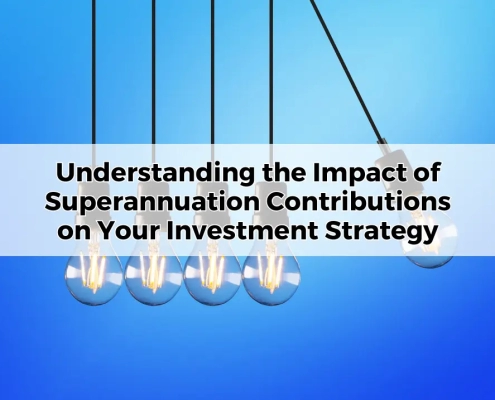
Impact of Superannuation Contributions on Your Investment Strategy
Superannuation is a cornerstone of retirement planning in Australia, yet its influence on investment strategy is often underappreciated. By aligning super contributions with a broader financial plan, Australians can maximise returns…
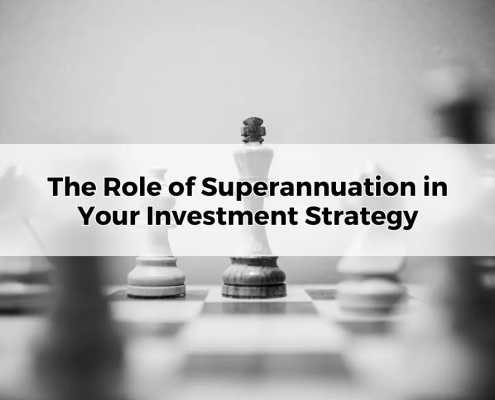
The Role of Superannuation in Your Investment Strategy
Superannuation, often abbreviated to ‘super,’ forms a central pillar of Australia’s approach to retirement funding. Its purpose is straightforward: to empower individuals to save methodically over their working life, ensuring financial…
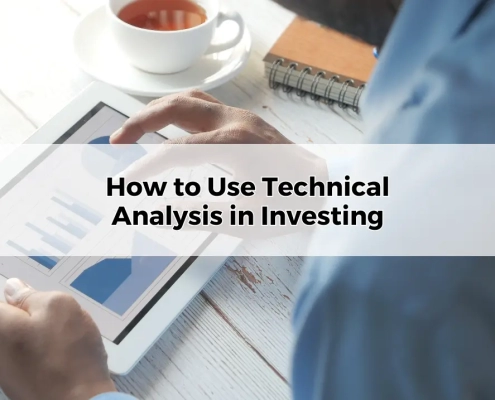
How to Use Technical Analysis in Investing
Technical analysis is a method used by investors to forecast future price movements by examining historical market data, primarily price and volume. Unlike fundamental analysis, which assesses a company's financial health or economic conditions,…

Understanding the Australian Stock Exchange (ASX)
The Australian Stock Exchange (ASX) plays a pivotal role in Australia’s financial system. It facilitates the buying and selling of securities, providing investors with opportunities to grow their wealth while supporting the growth of listed…
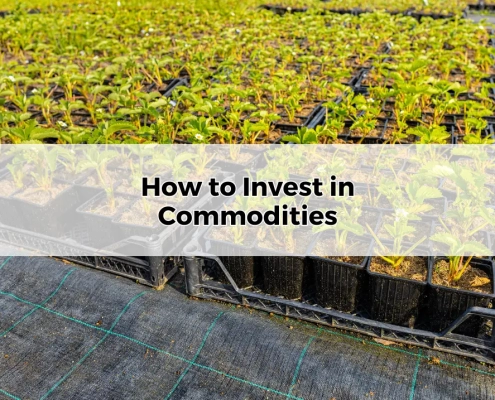
How to Invest in Commodities
Commodities are an essential asset class for investors looking to diversify their portfolios and hedge against inflation. Whether you're an experienced investor or just starting out, incorporating commodities can provide stability in times of…
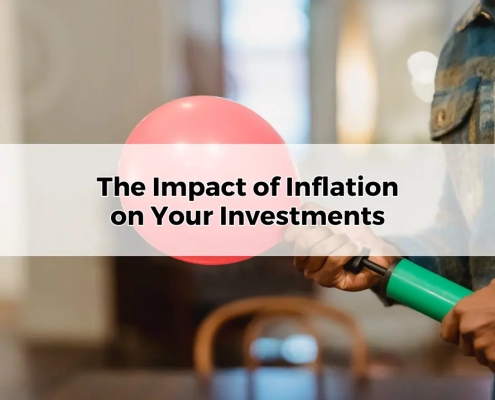
The Impact of Inflation on Your Investments
Inflation is an economic force that can silently erode the value of your money and investment returns over time. For investors, especially those planning for retirement, understanding the impact of inflation is critical. When left unchecked,…

Investing in Australian Government Bonds
Australian government bonds are often considered a cornerstone for conservative investors seeking stability. They offer a reliable, low-risk opportunity to generate income while preserving capital. For those looking to diversify their portfolio,…

How to Use Options in Your Investment Strategy
Options trading is an advanced financial strategy that can offer investors flexibility and additional income opportunities. Unlike traditional shares, options give you the right, but not the obligation, to buy or sell an asset at a predetermined…

Investing Your Superannuation in Property: Is It Worth It?
Superannuation, designed to support Australians in retirement, offers a wealth of investment opportunities, with property emerging as a popular choice. More Australians are now considering how they can utilise their superannuation to invest…
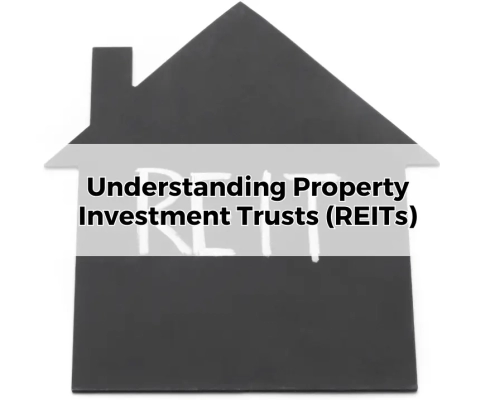
Understanding Property Investment Trusts (REITs)
Property Investment Trusts, or REITs, are financial vehicles that allow individuals to invest in large-scale, income-producing real estate. From commercial office spaces and shopping centres to hospitals and warehouses, REITs provide investors…
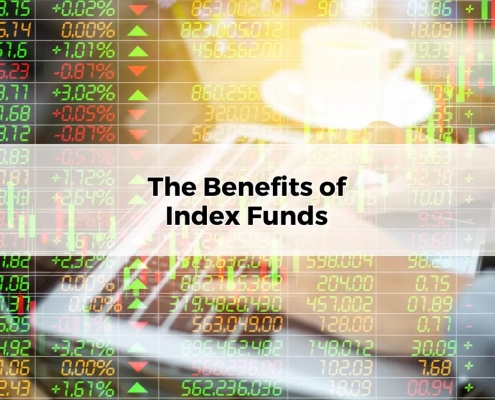
The Benefits of Index Funds
Index funds have emerged as one of the most popular investment vehicles globally, particularly among long-term investors seeking steady growth and lower costs. These funds offer a simple yet effective way to gain exposure to a wide range of…
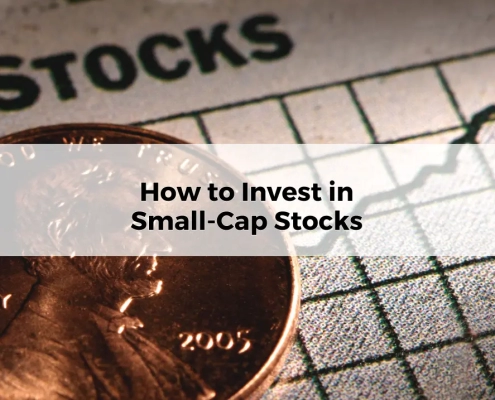
How to Invest in Small-Cap Stocks
Small-cap stocks refer to shares of companies with a relatively small market capitalisation, typically ranging from $300 million to $2 billion. While these companies may not have the market dominance or brand recognition of larger corporations,…

Investing for Retirement: Strategies and Tips
Retirement is a significant milestone that requires careful financial planning. For Australians, the transition from the workforce into retirement brings both freedom and responsibility. With life expectancy increasing, it is essential to ensure…
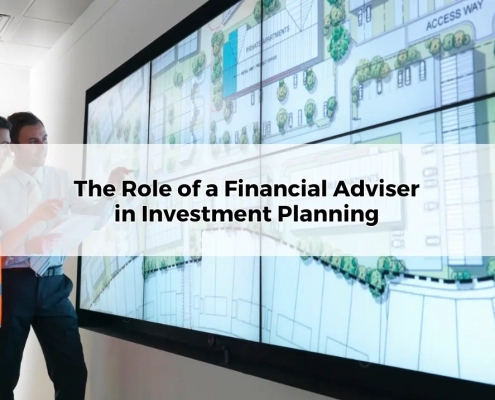
The Role of a Financial Adviser in Investment Planning
Investment planning forms the backbone of long-term financial success. Whether you’re saving for retirement, a home, or education, understanding how to invest strategically is vital. Yet, for many individuals, navigating the complexities…
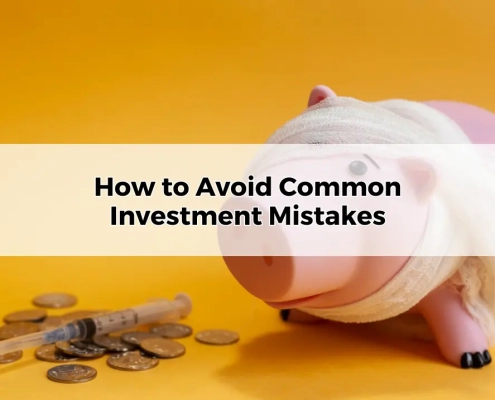
How to Avoid Common Investment Mistakes
Investing is a powerful tool for building wealth and securing financial independence. However, even the most seasoned investors can make mistakes that hinder their financial success. Avoiding common investment pitfalls is crucial for achieving…
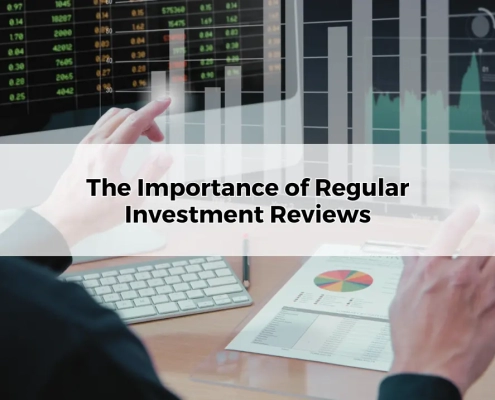
The Importance of Regular Investment Reviews
In the dynamic world of financial planning, investments are the cornerstone of wealth creation and preservation. However, simply selecting an investment strategy is not enough. To ensure financial success, regular investment…
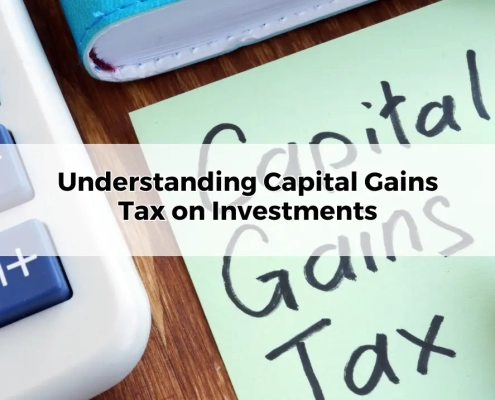
Understanding Capital Gains Tax on Investments
Capital Gains Tax (CGT) is a crucial aspect of the Australian taxation system that significantly impacts investment strategies and financial planning. Whether you’re investing in property, shares, or managed funds, understanding…
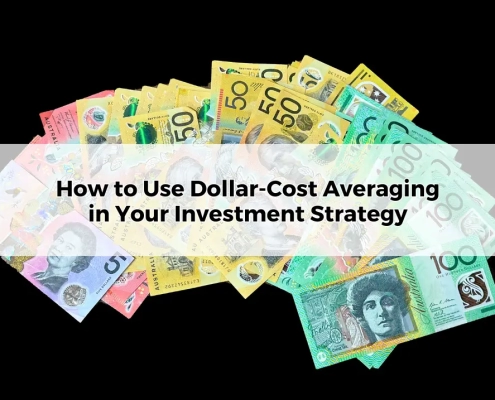
How to Use Dollar-Cost Averaging in Your Investment Strategy
Navigating the complexities of financial markets can be challenging, particularly in times of volatility. For many investors, the fear of making poor decisions can be paralysing. This is where professional guidance becomes invaluable. At Wealth…
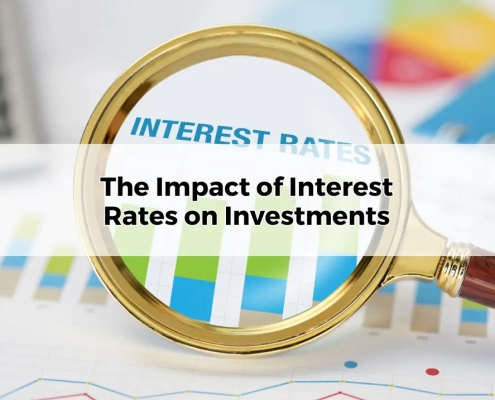
The Impact of Interest Rates on Investments
Interest rates are one of the most influential factors in the world of finance, with a profound impact on the economy and financial markets. Whether you're an individual investor, a retiree, or someone saving for a major life event, understanding…

How to Invest in International Market
In an increasingly interconnected global economy, the importance of diversifying one's investment portfolio across international markets cannot be overstated. Investing beyond domestic borders opens up a plethora of opportunities for growth…
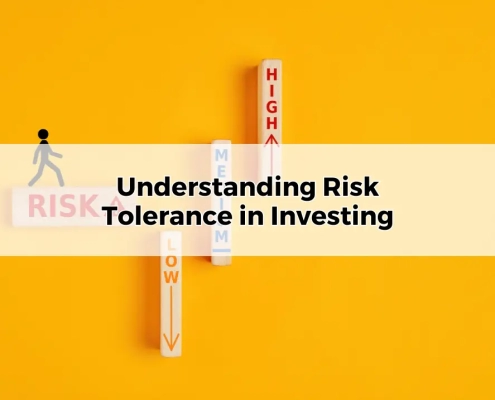
Understanding Risk Tolerance in Investing
Risk tolerance is a cornerstone concept in the realm of investing. It determines how much market volatility an investor can comfortably withstand without succumbing to anxiety. Properly understanding and assessing one's risk tolerance is crucial…

How to Start Investing in Cryptocurrencies
Cryptocurrency, at its core, is a digital or virtual form of currency that uses cryptography for security. Unlike traditional currencies issued by governments, cryptocurrencies operate on decentralised networks based on blockchain technology.…
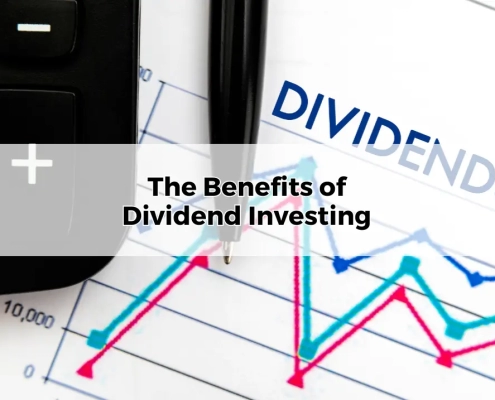
The Benefits of Dividend Investing
Dividend investing has long been a favoured strategy for building wealth and generating income. In Australia, this approach holds particular appeal due to the unique tax advantages and the stability offered by many dividend-paying…

How to Align Your Investments with Your Values
The Rise of Ethical Investing
Ethical investing has gained substantial momentum in recent years, driven by a growing awareness of social, environmental, and governance issues. Investors are increasingly looking to align their portfolios with…
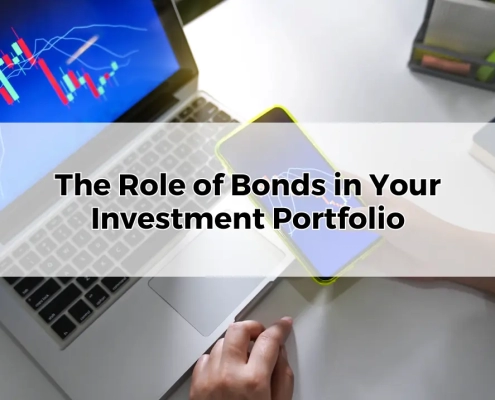
The Role of Bonds in Your Investment Portfolio
Bonds are a vital component of a diversified investment portfolio, offering stability, regular income, and risk mitigation.

How to Invest in Real Estate
Investing in real estate in Australia offers numerous opportunities for building wealth and securing financial stability.

How to Make Salary Sacrifice Contributions to Superannuation
Making salary sacrifice contributions to superannuation is a strategic way to boost your retirement savings and enjoy immediate tax benefits.
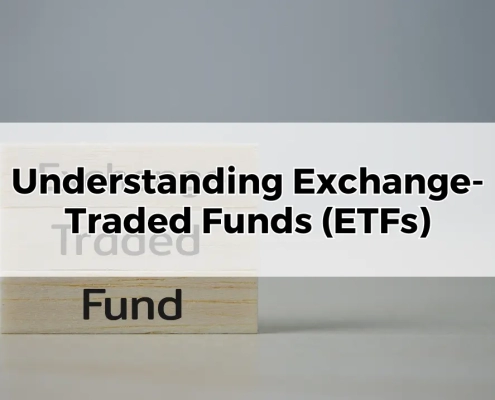
Understanding Exchange-Traded Funds (ETFs)
ETFs offer a versatile and cost-effective way to invest in a diversified portfolio of assets. By understanding how they work, their benefits and risks, and how to choose the right ones, investors can make informed decisions to achieve their financial goals.
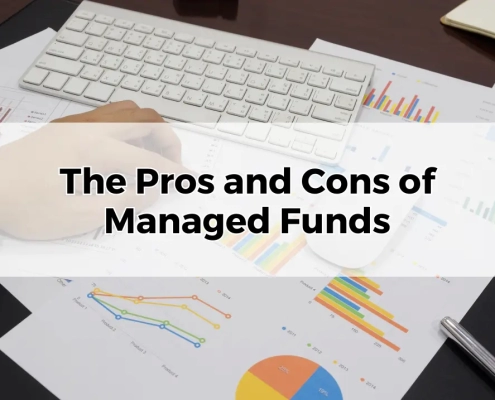
The Pros and Cons of Managed Funds
Investing in managed funds in Australia comes with its set of advantages and disadvantages. While they provide professional management, diversification, and convenience, they also entail fees and reliance on fund managers.
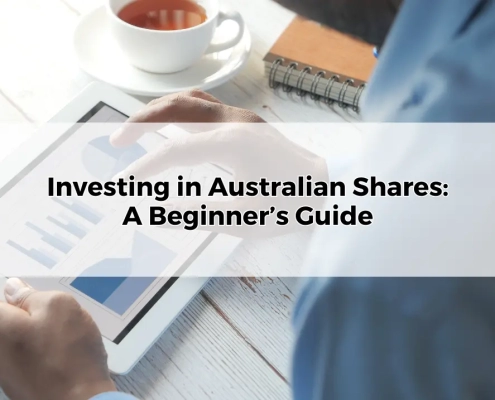
Investing in Australian Shares: A Beginner’s Guide
Investing in the share market can seem daunting, especially for beginners. However, with the right knowledge and strategy, it can be a rewarding way to build wealth.
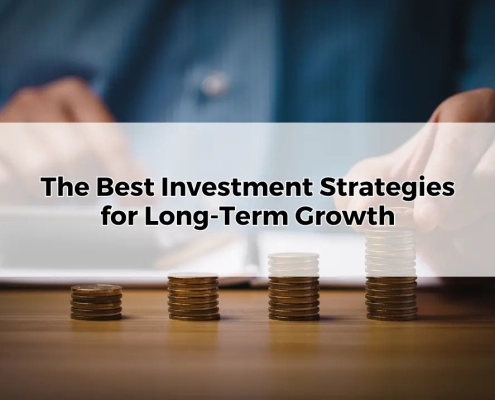
The Best Investment Strategies for Long-Term Growth
Crafting an investment strategy geared towards long-term growth is essential for building wealth and ensuring financial stability. With a plethora of investment options available, understanding which strategies provide the best potential for sustained growth can be daunting.

Understanding Superannuation Contributions
Superannuation contributions are a fundamental aspect of financial planning for retirement in Australia. They represent a vital component of ensuring financial security and comfort in one’s later years. Regular contributions to your superannuation fund can significantly enhance your savings, providing a robust financial buffer when you retire.
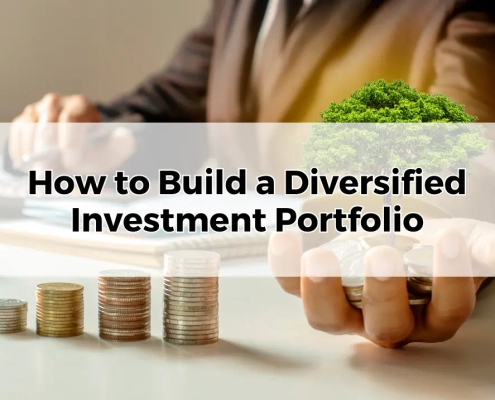
How to Build a Diversified Investment Portfolio
Diversification is a fundamental principle in the world of investing. It is a strategy that spreads investments across various financial instruments, industries, and other categories to reduce exposure to risk. By diversifying, investors can protect their portfolios against significant losses and enhance potential returns over time.

The Best Superannuation Funds in Australia
Selecting the right superannuation fund is a pivotal decision that can significantly impact your financial future. With superannuation being a major source of retirement income for Australians, choosing wisely ensures that your retirement savings grow optimally, offering you financial security and peace of mind.
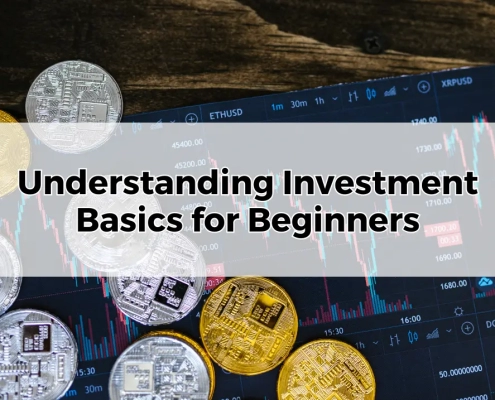
Understanding Investment Basics for Beginners
Investing is a powerful tool for building wealth and securing financial stability. It allows your money to grow over time, often outpacing inflation and providing a source of income or financial security for the future. Understanding the basics of investing is crucial for anyone looking to achieve long-term financial goals.

Understanding the Basics of Superannuation
Superannuation serves as a pivotal element in the architecture of financial planning, particularly in Australia. It ensures that individuals accumulate sufficient funds to support their lifestyle post-retirement, alleviating reliance on government pensions. This comprehensive savings mechanism fosters financial independence and security in one’s twilight years.
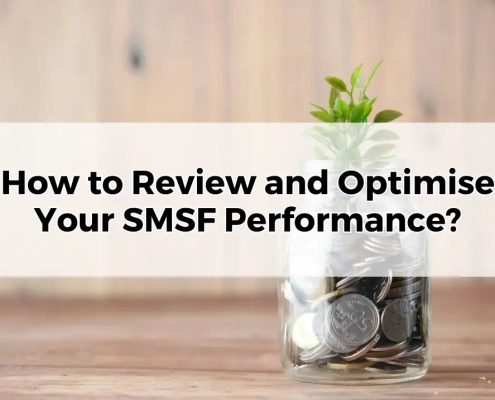
How to Review and Optimise Your SMSF Performance
Self-Managed Super Funds (SMSFs) offer a unique opportunity for individuals to take control of their retirement savings. Regular reviews and optimisations are essential to ensure that your SMSF is performing at its best and aligning with your financial goals.
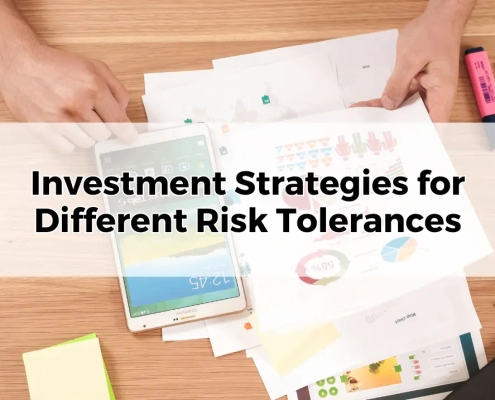
Investment Strategies for Different Risk Tolerances
This blog post explores the importance of aligning your investment approach with your personal risk tolerance and provides tailored strategies across the risk spectrum to help investors make informed choices.

Planning for Retirement in an Inflationary Environment
With recent trends indicating rising inflation rates, retirees must adjust their financial strategies to ensure that their savings will not only last but also maintain their purchasing power throughout their retirement years.

Navigating Market Volatility in Retirement
Market volatility is an inevitable aspect of the investment landscape, particularly perturbing for those embarking on the golden phase of retirement.

Seniors Go Digital: Mastering Money Management
In an era where technology evolves at the speed of light, seniors are not just keeping pace but are on the vanguard, embracing digital banking and investment platforms.
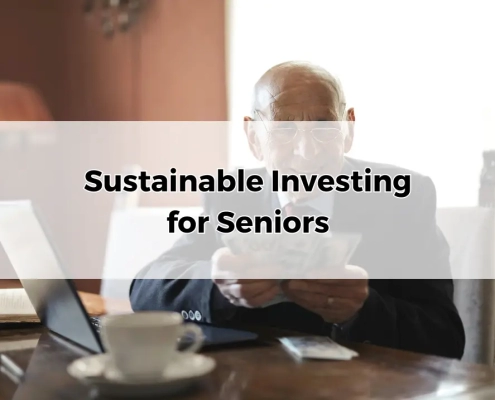
Sustainable Investing for Seniors
The concept of sustainable investing transcends the traditional metrics of profit, delving into the broader impact of where money is allocated.
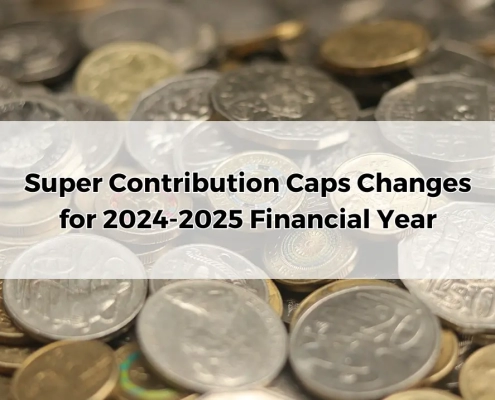
Super Contribution Caps Changes for 2024-25 Financial Year
This year, significant alterations in super contribution caps are poised to redefine the saving strategies for the 2024/25 financial year. Grasping these changes is crucial for anyone looking to optimise their financial future.

How can I maximise my Age Pension in 2024?
In this blog post, we'll share clear, straightforward strategies to maximise your Age Pension in 2024

How can you protect your investments from cyber threats?
In today's digital world, where convenience often means interacting online, protecting ourselves and our loved ones from cyber threats is more important than ever. This is especially true for seniors, who may be unfamiliar with the latest online…

How can you determine if an SMSF is right for you?
This blog post aims to help you navigate the world of SMSFs. We'll break down the key factors to consider, weigh the pros and cons, and guide you towards making the best decision for your unique circumstances.

How can you choose the right investment advisor for your needs?
This blog post aims to serve as a trustworthy resource for seniors, their guardians, and family members who are considering engaging an investment advisor.

How can you catch up on lost retirement savings in your 50s or 60s?
In this blog post, we'll share some practical strategies you can use to boost your retirement savings, even if you're starting late.

How can you avoid common mistakes with SMSFs?
In this blog post, we'll delve into the common pitfalls to avoid when managing an SMSF, focusing on practical tips and strategies tailored for seniors and their families.

How can I minimise the tax implications of an SMSF?
This blog post will equip you with clear, straightforward strategies to minimise the tax burden of your SMSF.

How to withdraw money from your SMSF?
Your Self-Managed Super Fund (SMSF) represents years of dedicated contributions, a nest egg patiently growing for your future. But when that future arrives, how do you access those funds seamlessly and efficiently? That's where understanding your withdrawal options becomes crucial.

How to get the most out of your SMSF?
Your Self-Managed Superannuation Fund (SMSF) can be a powerful tool for building a comfortable retirement. However, navigating the complexities of an SMSF can feel daunting. This blog post is designed to serve as your roadmap to maximising the potential of your SMSF.

How to plan your retirement with your SMSF?
With the increasing popularity of Self-Managed Super Funds (SMSFs) in Australia, many of you are taking control of your retirement future. While this independence brings exciting possibilities, it also comes with unique challenges.

How to deal with SMSF disputes?
SMSFs have become increasingly popular, offering retirees greater control over their retirement savings. While empowering, the freedom of an SMSF can also bring unique challenges, particularly when it comes to disagreements among members.

How to comply with SMSF regulations?
In this blog post, we'll demystify the key compliance areas you need to master to keep your SMSF humming along smoothly.

How to choose an SMSF Service provider?
In this blog post, we'll break down the key factors to consider when choosing an SMSF service provider, ensuring you pick the partner who'll empower you to make the most of your super and unlock a brighter retirement horizon.

How to refinance mortgage?
Whether you're aiming to save money, reduce monthly repayments, or unlock equity, refinancing can be a strategic move to enhance your financial well-being.

How to leverage life insurance?
While life insurance extends beyond its primary role of providing a financial safety net; it also harbours the potential to be leveraged as a versatile tool for wealth accumulation and strategic financial planning.

How does the first home owner grant work?
Owning a home is a significant milestone for many Australians, representing a symbol of stability, financial security, and the achievement of a long-held dream. However, the path to homeownership can be daunting, especially for first-time buyers navigating the complexities of the Australian property market.

How to avoid death tax on superannuation?
For many Australians, super becomes their largest asset, but it's also subject to complex tax rules at death. Depending on who inherits your super, a hefty chunk could be siphoned off by the Australian Tax Office (ATO).

How to avoid capital gains tax on investment property?
Owning investment property in Australia is a fantastic way to build wealth. But let's face it, capital gains tax (CGT) can put a serious dent in your profits when it's time to sell.

How to protect superannuation in divorce?
In this blog post, we'll provide you with a concise guide on protecting your superannuation during divorce.

How much emergency fund should I have?
Life is unpredictable. Unexpected events like job loss, medical emergencies, or natural disasters can throw your finances into disarray. That's why having a strong emergency fund is essential for Australians.

How Millionaires Build Wealth Using Life Insurance?
In this blog post, we'll unveil the secrets of how millionaires use life insurance to build wealth.

How to compare super funds?
It is important to compare super funds before choosing one, as there is a big difference in fees, investment performance, and features between different funds.

When should I start planning for retirement
How do you turn retirement dream into a reality? The answer lies in the power of planning, and the sooner you start, the better.

How to choose the right investment options for your pension?
In this comprehensive guide, we'll delve into the world of pension investment options, equipping you with the knowledge and tools to make informed decisions about your financial future.

How to choose a super fund?
In this comprehensive guide, we will delve into the world of super funds, equipping you with the knowledge and tools to make a well-informed decision about your retirement savings.

How to buy your first investment property?
This comprehensive guide will equip you with the essential knowledge and insights to navigate the world of property investment in Australia

How to avoid property investment failure in Australia?
Property investment has long been a popular choice for Australians seeking to build wealth and secure their financial future. While it offers the potential for significant returns, property investment also carries inherent risks.

How Does Super Income Stream Affect Pension?
As an Australian retiree, you've likely accumulated a sizeable amount in your superannuation fund over the years. However, there are a few things you need to understand about how super income streams affect your pension.
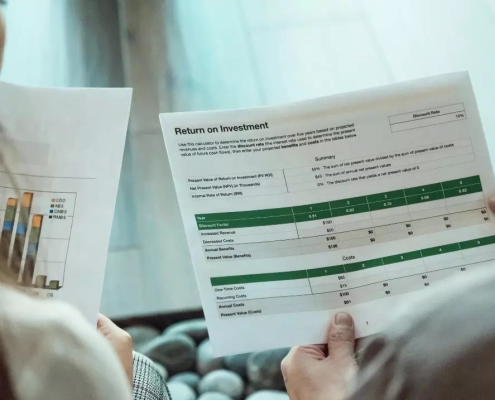
How to start your own investment portfolio?
Whether you're planning for retirement or simply building wealth over time, embarking on an investment journey can seem daunting, especially for beginners.

How does diversification reduce risk?
In the world of investing, diversification is a crucial concept that helps individuals and financial advisors manage risk and achieve their financial goals.

Beginner’s Guide to SMSF
Before diving headfirst into the SMSF pool, it’s crucial to understand the nuts and bolts of how it operates.

Strategies to build wealth in retirement
Amassing wealth for a prosperous retirement requires meticulous planning, strategic investment, and a holistic understanding of financial management.

Navigating market volatility and recession in retirement?
Retirement ought to be a time of peace and financial stability, yet the volatility of investment markets and the looming threat of recession can cast a shadow of uncertainty on this phase of life.

Unveiling the world of SMSF property investment
Dive deep into the realm of SMSF Property Investment, exploring the ins and outs, potential benefits, and crucial strategies to navigate this lucrative investment avenue with confidence and savvy.

Unravelling the world of self-managed super funds
Self-Managed Super Funds (SMSFs) have emerged as a dominant force in Australia's retirement planning landscape, offering individuals unparalleled control and flexibility over their retirement savings.

Age Pension Rates and Limits as of 20th September 2023
Understand the new Age Pension rates and limits effective 20th September 2023.

Is the First Home Super Saver scheme worth it?
In this blog post, we're going to dive deep into the world of the First Home Super Saver scheme and explore whether it's truly worth your while.

What to do with an inheritance?
In this blog post, we'll help you navigate the path ahead, offering straightforward advice to make the most of this opportunity.

When should you change super funds?
In this blog post, we'll break down the process of changing super funds and help you decide whether it's the right move for you.

Is it good to rebalance your portfolio?
In this blog post, we're going to take you on a journey through the ins and outs of portfolio rebalancing.

Is downsizing a good idea for retirement?
As you approach your golden years, making informed decisions about your retirement becomes more crucial than ever. One significant consideration that often arises is whether downsizing your home is a wise move for your retirement journey. Picture…

Is it better to put extra money into super or mortgage?
In this blog post, we're here to guide you through this decision-making process and shed light on whether it's better to bolster your super or pay down your mortgage.

Can I wind up my SMSF?
In this blog post, we'll walk you through the essential information you need to know about winding up an SMSF.

How does equity release work?
In this blog post, we will explore the ins and outs of equity release, answering the question: "How does equity release work?"

What is sustainable investing?
In today's rapidly changing world, sustainable investing has emerged as a powerful approach to aligning financial goals with positive environmental and social impact. If you've ever wondered what sustainable investing is all about, you're in the right place.

How much can I borrow from SMSF?
In this blog post, we will delve into the world of SMSF borrowing and shed light on questions such as whether you can borrow money from your SMSF, the rules and limitations surrounding SMSF borrowing, and the pros and cons you should consider before making such a financial decision.

How to reduce capital gains tax when selling a property?
Are you planning to sell a property in Australia? If so, it's essential to be aware of capital gains tax (CGT) and how it can impact your financial outcome.

How does debt consolidation work?
If you're struggling with multiple debts and finding it difficult to keep up with various payments, debt consolidation could be the solution you've been looking for.

Should I claim a deduction for personal super contributions?
In this blog post, we'll explore the topic of claiming a deduction for personal super contributions and help you determine whether it's the right choice for you.

What is a dividend reinvestment plan?
In this blog post, we’ll cover everything you need to know about what a Dividend Reinvestment Plan is, how it works, the benefits of using one, where people can get started with setting up such plans and more!

How are franking credits calculated?
In this blog post, we will explain what franking credits are and provide a detailed look into how they're calculated in Australia. Read on to learn more about this important tax incentive and start taking advantage of the maximum savings you can get with your investments!

What is a passive income?
In this post, we’ll provide an overview of what passive income is and why it matters for those aiming to build long-term financial security.

How does a reverse mortgage work?
A reverse mortgage is one of the most complex home loans available – and due its complexity, many people are unsure about exactly how this type of loan works. So read on and find out if this could be an option for your retirement planning!

What is spouse contribution and contribution splitting?
Are you considering splitting contributions to your superannuation fund with a spouse? With the complexity of Australian tax and superannuation laws, it can be difficult to understand how spouse contribution and contribution splitting works in Australia.

How to privately sell a house?
Are you looking to privately sell a house? Selling your home can be an emotional and complex process, so understanding the specific legal and financial requirements of such a sale is essential.

What is the re-contribution strategy for super?
In this blog post, we will talk about re-contribution strategy for super so that you can get started on making an informed decision about your financial future. Keep reading to find out more!

What is debt recycling?
This blog post will discuss what debt recycling is, how it works in Australia, its benefits metrics, its downfalls, and some helpful tips on how to best approach this strategy. Let's dive right in!

Is buying property with an SMSF a good idea?
This blog post will discuss whether buying properties with an SMSF is actually a good idea or not - taking into account various considerations such as taxation, investment risks, advantages and disadvantages.

Where to invest money to get good returns?
In this blog post, we’ll be taking a look at where to invest your money in order to get good returns. We’ll dive into which investment types offer the best yields and safety measures, as well as which ones tend to bring higher levels of risk.

What is Lenders Mortgage Insurance?
In this blog we will discuss everything from what exactly is LMI to whether or not it's worth your time. So read on for all of your questions about Lenders Mortgage Insurance!

What is a redraw facility?
In this blog post, we will take a look at what exactly constitutes a redraw facility and why it may be worth considering for those looking for more control over their current debt situation.

How to reduce taxable income?
In this post, we’ll explore a few strategies for reducing taxable income down under – from tax deductions and offsets to investing in bonds- so that you can maximise your earnings without having to pay too much of it back!

How to build wealth?
In this blog post, we’ll discuss how to effectively use various avenues of creating wealth in Australia today such as investing, saving and budgeting as well as dealing with debt management issues.

How to use equity to buy an investment property?
This blog post will give you everything you need to know about using your equity as capital for purchasing an investment property. Let's dive right into what you need to get started on your successful real estate venture!

How does negative gearing work?
Read on to learn all about negative gearing – a concept that can be a great way to minimise taxable income. Discover and understand what is involved, who qualifies for these deductions, and how they could potentially work in your favour.

How can I withdraw my superannuation?
This blog post will provide an overview on everything you need to know about withdrawing your retirement savings so that you make informed decisions regarding the best way to access them. Let’s jump in!

Do I need to pay super for casual employees?
If you employ casual staff in Australia, there are important legal requirements you need to look out for. It’s your responsibility as an employer to understand and fulfil your obligations when it comes to superannuation payments.

How do I claim my superannuation when I leave in Australia?
If you're leaving Australia and want to claim your superannuation, don't worry, it's easy! Even if you're on a temporary visa and have been working in Australia, your employer has most likely been paying into your super. When it's time to leave, you can apply to take your super with you.

What is an offset account?
Offset accounts are one of the best ways to cut down on mortgage repayment costs and can potentially help you pay off your home loan sooner. But what exactly is an offset account, and how does it work in Australia?

How to get out of debt?
This blog post outlines everything you need to know about how to get out of debt in Australia – from strategies for managing money more efficiently all the way through consolidating existing loans.

How much super do I need to retire at 55?
In this blog post we explore these topics in detail and provide a comprehensive guide on what’s required to achieve a comfortable retirement lifestyle by age 55 in Australia.

What is a concessional contribution?
By the end of this blog post, not only should you know exactly what a concessional contribution is but also how to best leverage them for your own needs.

What are reportable superannuation contributions?
In this guide, we'll explore this topic and explain why they're important so that when it comes time to make investment decisions, you have all the information needed to make an informed decision.

How to buy an investment property?
In this blog post, we will provide step-by-step guidance on how to buy an investment property in Australia, along with tips on areas worth looking at and mistakes to avoid so you can make your venture profitable from day one.

Is investment property worth it?
In this blog post, we'll analyse all angles of investment property so that you can make an informed decision about whether real estate should be included as part of your financial portfolio.

How to set up a self managed super fund?
Setting up an SMSF isn't as easy at it might sound. This blog post will summarise the key steps involved including necessary documents, starting payments, and overall costs.

How to pay off mortgage faster?
In this blog post, we will explore how to pay off your mortgage quicker and smarter through budgeting, making lump payments and refinancing options. Let’s start taking advantage of the many financial opportunities available, so you don’t have to stress out about paying off your loan any longer!

How much can I put into super?
This blog post aims to provide clarity on how much you can contribute annually or over a lifetime towards your super balance in order to maximise your retirement savings and reap all the benefits that come with being a savvy investor! Keep reading to find out more!

How is debt to income ratio calculated?
In this blog post we'll provide an overview of what a debt to income (DTI) ratio is and explain how it's calculated. Read on if gaining control over your finances is something that interests you!

How much money can you have and still get a pension?
In this blog post, we will discuss exactly how much money you can have set aside and still get some form of government pension when planning for retirement.

Can super be used to buy a house?
In Australia, it's actually possible to use your super fund to purchase property. But before we dig into how this works and the benefits involved - let's explore exactly what constitutes 'superannuation' in Australia.

What happens to your superannuation when you die?
Death comes to us all, but the question of what happens to your superannuation when you die can be a tricky one. So, it’s time we addressed the elephant in the room – if you don't have an up-to-date Will and Estate plan, where does that leave your super?

How to pay super as a sole trader?
In this blog post, we'll explain everything you need to know when it comes to paying superannuation as a sole trader in Australia - from how the process works and who's eligible for payment, all the way through to what happens if it isn't paid correctly.

How to buy property with super?
Are you looking to jump into the property market and start building wealth, but not sure how to do it? You're not alone. Property investment is one of the most popular and powerful ways to create financial security and freedom – but wading through all the information about it can be daunting.

How much can I salary sacrifice into super?
Have you ever wondered, "How much can I salary sacrifice into super?" Well, wonder no more. In this blog post, we'll break down the current concessional contribution limit and explain why it's important for financial advice clients to be aware of it.

Is superannuation an asset?
Understanding the world of money and superannuation can be a difficult task, especially when it comes to understanding where your hard-earned savings stand. So, is superannuation an asset? It's understandable to feel overwhelmed by all the financial terms, but don't worry - we're here to break down everything you need to know.

Can I use my super as a house deposit?
Do you dream of owning your own home but, the thought of gathering a large house deposit is keeping you awake at night? If so, have no fear - help is here! We're going to explore whether using superannuation as a house deposit could be an option for Australians wanting to secure their financial future.

Investing for the future: why starting early is critical
Starting early is critical when it comes to investing for the future. The sooner you start saving, the more time your money has to grow. And compound interest is a powerful thing—it can help your money grow exponentially over time.

Diversifying Portfolio: Investing in overseas shares
In this blog post, we'll take a look at some of the reasons why investing in overseas shares is a smart move in diversifying portfolio, and how you can get started.
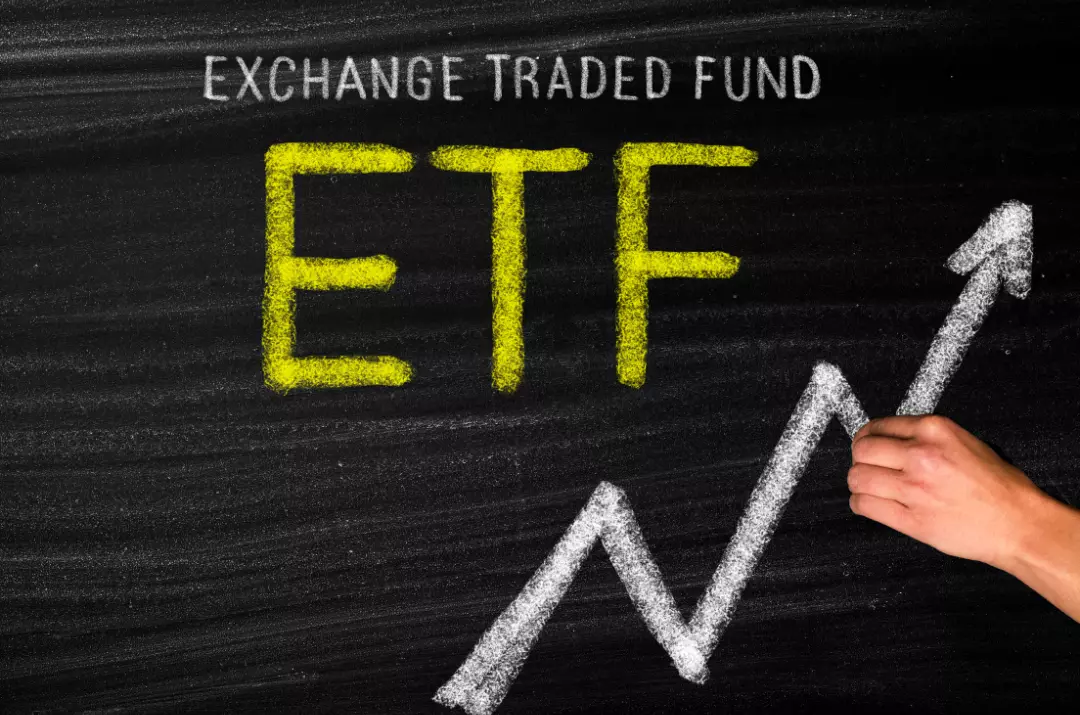
What are exchange traded funds?
Have you ever heard of Exchange Traded Funds (ETFs)? You might have some but not know what they are. As investors, we are always looking for ways to grow our portfolio and protect our savings. One way to do this is by investing in exchange traded funds (ETFs).

Should I change my risk level when markets are volatile?
There's no doubt that the stock market has been incredibly volatile throughout 2022 so far. Making a change in your risk level based on market conditions can be tricky. Let’s take a closer look at when it might be appropriate to make a switch and when it's better to stay the course.

How does inflation impact your portfolio?
Hope for the best, plan for the worst. Inflation is back after 40 years - how does inflation impact client portfolios?

The Female Investor
This article will discuss the rise of female investors and the differences in their investing strategies compared to men.
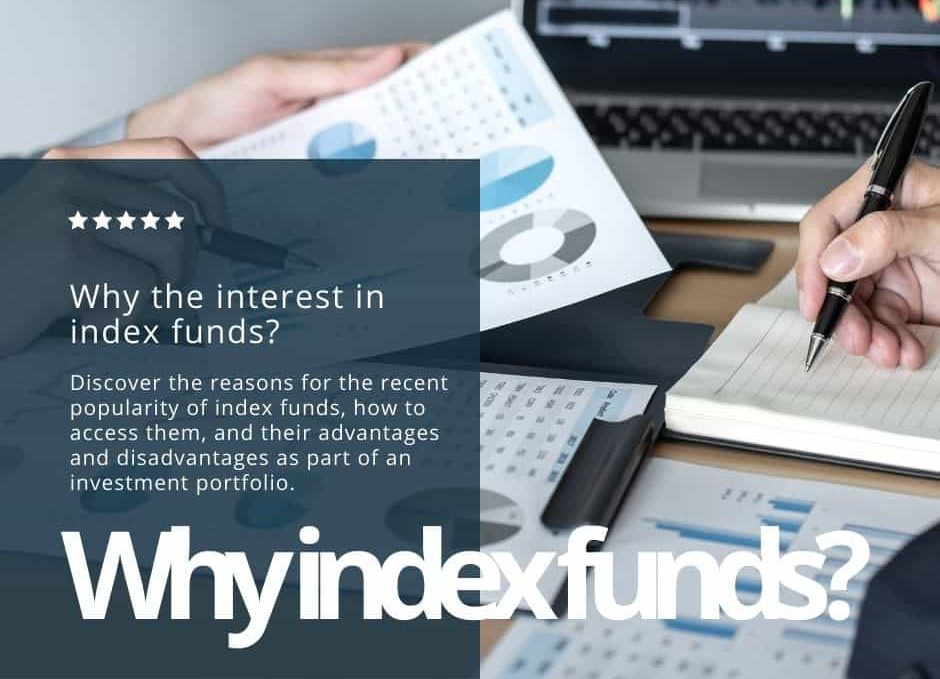
Why invest in index funds Australia
This article provides an overview of index funds, including how to access them, their advantages and disadvantages, tips and tricks on how to get the most out of your index fund investments, and concludes with a recommendation to consult a financial planner for further guidance.

Investment Risk Management
Volatility in the financial markets is nothing new. Asset prices have always experienced ups and downs, and there will always be risks inherent in investing. However, it's important to remember that investing is a long-term play and the investment risk management is key.

Build Wealth And earn a million with $200
Have you ever wanted to have a million dollars in your bank account? Today, I’m going to tell you a wealth strategy by which almost everyone can have $1,000,000 in the bank.


